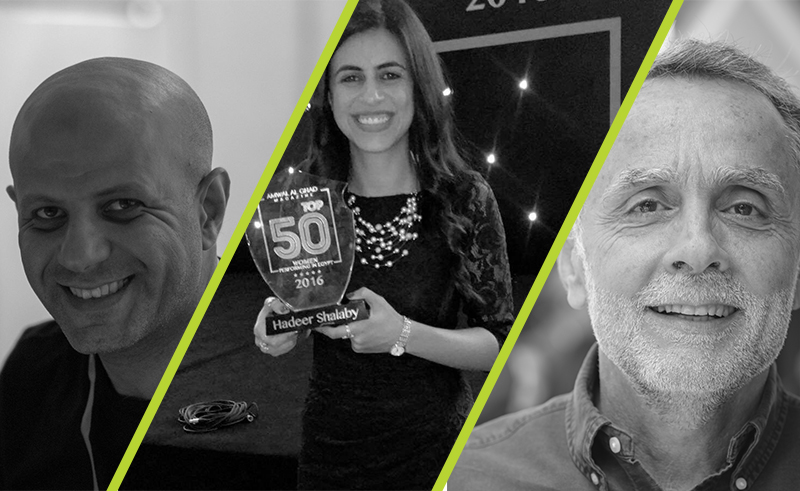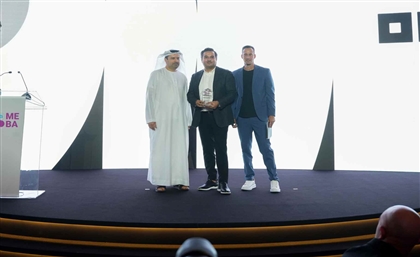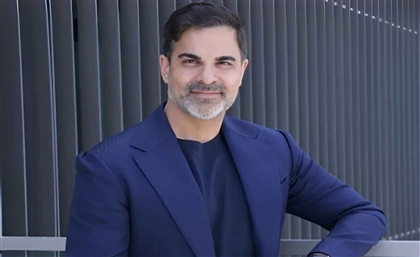Must An Investor Be An Entrepreneur First? We Ask 3 Entrepreneurs-Turned-Investors
There’s a lot of entrepreneurs and investors in the sea of the ecosystem… But only a few choose to live the worst before the best of both worlds.

According to Forbes, 80 percent entrepreneurs crash before closing their second year of their startup’s lifespan, mainly due to cash scarcity. In spite of this bumpy road, emerging markets have shown their hunger for such an alternative solution to unemployment.
The Middle East and North Africa region is one of the most digitally connected in the world. According to Mckinsey’s 2018 report “Entrepreneurship in the Middle East” an average of 88 percent of the Middle Eastern population is online on a daily basis, and 94 percent of the population owns a smartphone, making it a very fertile land for growing businesses in the tech space.
“The region is about five years old in the digital space;” says Fadi Ghandour, a serial entrepreneur and investor. “It’s when the mobile really got ubiquitous and available in every hand of individual and citizen in the region. So, all these companies that started four or five years ago are maturing and are actually going and conquering in multiple geographies across the region.” But entrepreneurship is not the caliber that is on the rise in the regional ecosystem, the number of investors in the region increased by 30 percent from 2015 to 2017, while total funding increased by over 100 percent in the same period, also according to Mckinsey.
But what is it like to be at both ends of the ecosystem? We ask the founder of Aramex, Ruwad Developments and Wamda Group, Fadi Ghandour, Careem’s regional director of Careem Bus and Angel Investor Hadeer Shalaby and the founder of Fakahany and managing partner of Endure Capital Waleed Khalil.
Fadi Ghandour // Aramex and Wamda Group

Lebanese serial entrepreneur and investor Fadi Ghandour started his entrepreneurial journey at the age of 23, when he founded Aramex, a global logistics and transportation provider, in 1982. He later became the Executive Chairman of Wamda Group, the mother company of Wamda Fund, a Venture Capital that invests in technology-enabled companies in the Middle East and North Africa region, Turkey and East Africa. “Wamda is in existence today because I am a serial entrepreneur,” he tells Startup Scene. “And an entrepreneur is forever an entrepreneur.”
Business runs in his blood. After seeking political refuge in Jordan, Ghandour’ father became the founder of the Royal Jordanian airlines. The exoduses and frequent displacements that has surrounded Ghandour since childhood have inspired him to found and chair an NGO in 2005 and called it Ruwwad for Development; an initiative that helps disadvantaged communities across in Jordan, Lebanon, Palestine and Egypt overcome marginalisation through activism, civic engagement, education and financial inclusion.
“I feel that my history and my knowledge of building complicated businesses and addressing challenges that a big business eventually faces, is in the core of what we do at Wamda and what I do there,” he says.
With almost 40 years in the market, Ghandour is equipped with an understanding to the challenges of recruiting people and building products that are differentiated on the ground. He knows the complex regulatory environment by heart. “I think everybody that wants to build and invest in businesses in the region’s digital space, need someone that adds value, someone that has done it,” he says. “It’s not about the money, it’s about the deep knowledge and experience that I’ve built with my team over the years in solving these challenges.”
Ghandour finds that 2018 was a relatively good year for entrepreneurship in the region; watching the mature startups growing and raising their next Series B. “I can say that 2018 is a year that has proven that if you invest in these startups at an early stage, that are solving problems that exist in society, they’re going to make it,” he explains. Even though funding likes size, Ghandour is an early stage investor; he takes the biggest risk. “The region is fundable, and 2019 and 2020 are going to be the years of proving that you actually can make money if you invest in startups;” he anticipates. “There will be plenty of exits happening in the coming two or three years to prove that venture and early stage investing is an asset class that makes substantial returns.”
Hadeer Shalaby // Careem and Angel Investor
Hadeer Shalaby has been leading new categories in Careem’s headquarters based out in Dubai, and she's just been recently promoted to regional director of Careem Bus. Graduated as an engineer, seeing an untapped opportunity in Egypt’s ultimate summer destination, the North Coast, Shalaby started her entrepreneurial journey by establishing Taxi El-Sahel in 2014. A year later, three years after Uber’s regional rival was born in the UAE, Careem bought Taxi El-Sahel and hired Shalaby as Egypt’s general manager.
“What encouraged me to be an angel investor is that I was part of the transportation sector and I felt a bit jealous,” she tells Startup Scene. “I wanted to be a part of so many different sectors.
Just like she saw the untapped potential in the North Coast, she could see it on the larger scale across the entire region and had a desire to impact other startups that are making the region a better place to live in, via a diversity of business models.
“So, being an entrepreneur helped a lot in becoming an angel investor, because you can relate,” Shalaby says. “You see the startups that you want to invest in, you see the people starting those startups and you can already more or less relate to whether they have the capabilities or the passion to do what you’ve done years ago. I think it makes it a lot easier for you to judge which startups can potentially be successful or not. It is challenging of course, and it’s impossible to know for a fact but it kind of helps you make a decision.”
Being an Angel Investor makes you see the other side of the coin; a side that Shalaby was not exposed to while setting up her startup before getting acquired by Careem. “When I got exposed to it, I got to understand a lot more about how investors think. Sometimes, it guides the direction that you might go for.”
In the last period, Shalaby has been based between Dubai and Cairo, which got her thinking: If I want to start a startup where should I go? “Of course, it depends on the business and the industry and everything but, I would recommend people to start in Egypt because the cost of learning is very low, the opportunity is huge, competition - believe it or not - is not that high yet,” she says; adding that in Dubai has a clear and accessible regulatory system when it comes to business, whereas education is very expensive. “Now, given that the investment scene has been growing in Egypt as well, it’s not as challenging as it was years ago to raise money,” she concludes.
Waleed Khalil // Fakahany and Endure Capital

Waleed Khalil has been mentoring startups for about a decade, years before becoming an investor. “The stories that I have listened to inspired a curriculum that I have curated, walking entrepreneurs through the different phases of startups,” he tells Startup Scene. “At a certain point of time, I felt that my mentoring could be of great value if those people got the right funding at the right timing.”
Five years before he joined Endure Capital as a partner, he founded Olkya Technology Limited, a consumer electronics manufacturing company, in Hong Kong. A few months after joining Endure Capital in February 2017, Khalil founded Fakahany, a tech-enabled startup that provides consumers with highest quality of fresh produce with best value for money via a mobile app.
Being an entrepreneur years before being an investor, has given Khalil some perspective. He extracted the flaws in each and has set himself on a mission to reform. “In our ecosystem, we have a problem in startup valuation,” he says. “Some investors in the seed phase especially exaggerate and under-valuate the startups which is unfair. So, when there is a certain sum of money in the round we’re in, we set the bar to those VCs so no one would rip them off. I’m not pointing fingers, but this has actually happened with several VCs and our suspicions were confirmed in the end.”
Khalil’s main aim is to help startups operate tasks, that require years, in a few months or weeks actually. “We also help by rectifying misconceptions that some tasks can’t be outsourced, we help them outsource in a smart way while protecting their intellectual property,” he says. “So, knowing all that beforehand, helped us help these startups take the jump at a good rate.”
Startups are all about the scalability. If you knew how to do the job in a shorter way and time with a very good result that means that your growth is going places – and that is what Khalil is trying to leverage on. “Being an entrepreneur, you would have experienced the good and the bad and have a bank of insights of most of the aspects of entrepreneurship, you are able to help people take the step faster and reach the goal in record time,” he says.
Being an investor, on the other hand, would help you understand the mindset of investors, so you can walk the talk as they say, and guide both the startups and investors through what already exists inside your startup. Moreover, you would understand in advance the questions that the investors will ask. “Some of the investors get hesitant when they find that the entrepreneurs are not going directly to the point they want to hear during the pitch when they speak about fundraising and monetisation,” Khalil explains; knowing the lingo in advance would help entrepreneurs reassure reluctant investors.
“Being an investor and an entrepreneur enables you to know how to talk with investors in their own lingo,” he says. “By doing that, you will know how to address the pitch without wasting time with blabber about market conditions that is very far from the solution that this startup is proposing or the value preposition.”























